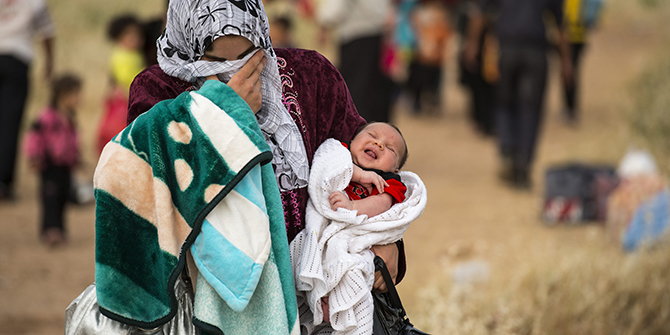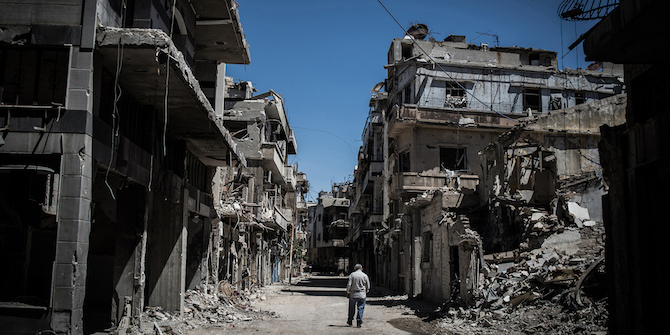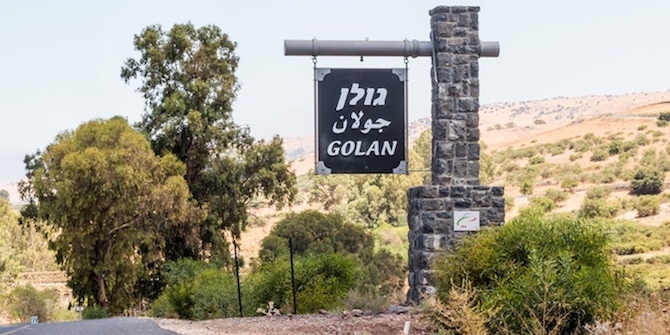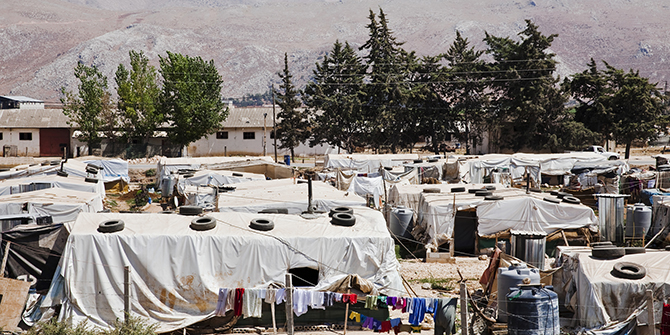by Filippo Dionigi
This article was originally published by the Middle East Institute on 20 July 2017.

Anyone who works on issues related to refugees and forced displacement in the Middle East has at least once experienced what could be called ‘reverse moralism.’ A year ago, a journalist interviewed King Abdullah II of Jordan. During the conversation, she raised a question concerning the situation of 16,000 Syrians stranded in the border area of Rukban into an informal camp with minimal access to humanitarian aid. The king responded that, ‘If you want to take the moral high ground on this issue, we’ll get them all to an airbase and we’re more than happy to relocate them to your country.’ The journalist moved on to the next question.
In Rukban today there are about 70,000 Syrians stranded whose situation is worsening. This is reverse moralism in action. As a European scholar meeting with policymakers and practitioners involved in the response to the Syrian refugee crisis in the Middle East, I could provide several similar examples.
To be sure, accusations of double standards are not new in Middle Eastern criticism of Western approaches to the region — and are often well-deserved. But in this case, we are not talking solely of allegations of doubles standards. Reverse moralism relies not only on the idea that moral standards (i.e., human rights, humanitarianism, etc.) typically — if approximately — associated with Western political culture, are applied selectively. The cases are steadily accumulating: the Guantanamo Bay, Cuba detention camp; the Abu Ghraib prison in Iraq; U.S. President Donald Trump’s ‘Muslim Ban’; European states’ deficient responses to migration flows; and lately, British Prime Minister Theresa May’s stance of prioritizing strict security measures over human rights principles are only some examples. Taken together, these cases illustrate that many Western states are competing with populist movements in a race to the moral bottom, thereby providing scope for refugee host countries in the Middle East to fend off criticism for some of their own failings.
Jordan is host to more than 650,000 Syrian refugees. Jordanian official sources claim that an equivalent number of non-refugee Syrians reside in the country. In a recent interview, Queen Rania of Jordan has asked ‘If my husband closed the borders, how would we sleep at night?’ The Jordanian government is proud of its hospitable stance to Syrian refugees.
Yet, since December 2016, the record of refugees being forcibly repatriated from Jordan to Syria has been increasingly significant. Already after the attack that killed seven Jordanian troops in Rukban in June 2016, many Syrians (exact figures are unknown) have been repatriated on the grounds that they pose potential security problems, while the border has been declared a military zone and closed… continue reading
 Dr Filippo Dionigi is Leverhulme Early Career Fellow, researching the impact of the Syrian refugee crisis on Arab statehood from a comparative perspective. He tweets at @FilippoDionigi.
Dr Filippo Dionigi is Leverhulme Early Career Fellow, researching the impact of the Syrian refugee crisis on Arab statehood from a comparative perspective. He tweets at @FilippoDionigi.






